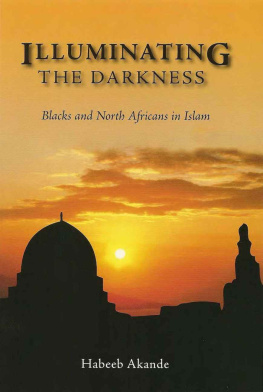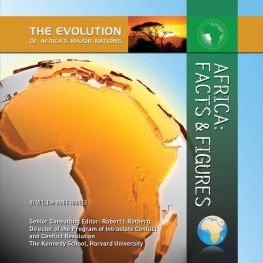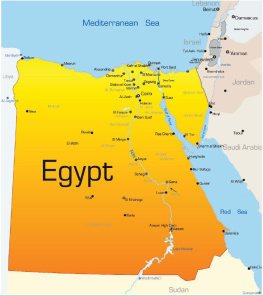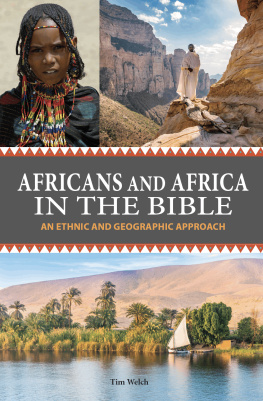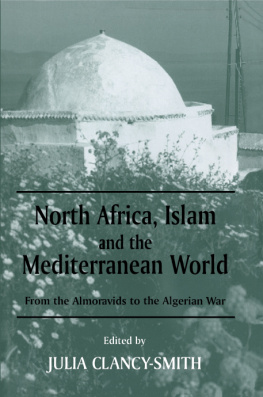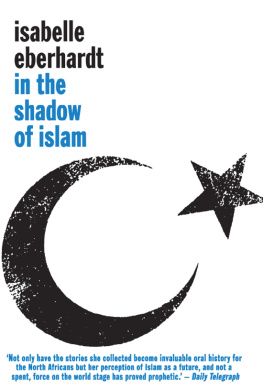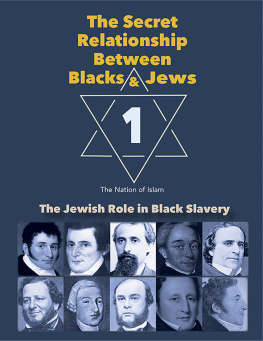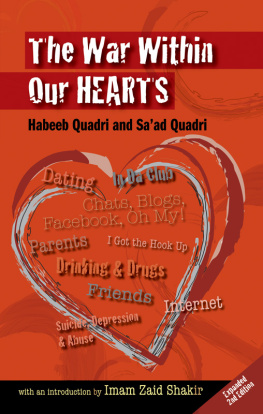Habeeb Akande - Illuminating The Darkness: Blacks and North Africans in Islam
Here you can read online Habeeb Akande - Illuminating The Darkness: Blacks and North Africans in Islam full text of the book (entire story) in english for free. Download pdf and epub, get meaning, cover and reviews about this ebook. year: 2012, publisher: Ta-Ha Publishers Ltd., genre: Religion. Description of the work, (preface) as well as reviews are available. Best literature library LitArk.com created for fans of good reading and offers a wide selection of genres:
Romance novel
Science fiction
Adventure
Detective
Science
History
Home and family
Prose
Art
Politics
Computer
Non-fiction
Religion
Business
Children
Humor
Choose a favorite category and find really read worthwhile books. Enjoy immersion in the world of imagination, feel the emotions of the characters or learn something new for yourself, make an fascinating discovery.
- Book:Illuminating The Darkness: Blacks and North Africans in Islam
- Author:
- Publisher:Ta-Ha Publishers Ltd.
- Genre:
- Year:2012
- Rating:4 / 5
- Favourites:Add to favourites
- Your mark:
- 80
- 1
- 2
- 3
- 4
- 5
Illuminating The Darkness: Blacks and North Africans in Islam: summary, description and annotation
We offer to read an annotation, description, summary or preface (depends on what the author of the book "Illuminating The Darkness: Blacks and North Africans in Islam" wrote himself). If you haven't found the necessary information about the book — write in the comments, we will try to find it.
Habeeb Akande: author's other books
Who wrote Illuminating The Darkness: Blacks and North Africans in Islam? Find out the surname, the name of the author of the book and a list of all author's works by series.
Illuminating The Darkness: Blacks and North Africans in Islam — read online for free the complete book (whole text) full work
Below is the text of the book, divided by pages. System saving the place of the last page read, allows you to conveniently read the book "Illuminating The Darkness: Blacks and North Africans in Islam" online for free, without having to search again every time where you left off. Put a bookmark, and you can go to the page where you finished reading at any time.
Font size:
Interval:
Bookmark:

ILLUMINATING
THE DARKNESS
Blacks and North Africans in Islam
Habeeb Akande

Ta-Ha Publishers Ltd.
1433 AH/2012 CE Ta-Ha Publishers Ltd. First Published in February 2012
Ta-Ha Publishers Ltd. Unit 4, The Windsor Centre Windsor Grove, West Norwood London, SE27 9NT, UK www.tahapublishers.com
Written by : Habeeb Akande Edited by : Abdassamad Clarke
Cover design and Typeset by : N.A. Qaddoura
A catalogue record of this book is available from the British Library
ISBN-13: 978-1-84200-127-1
Front cover image: Ibn Tulun mosque, Egypt
Dedicated to my parents
Lord, show mercy to them as they did in looking after me when I was small.
(Srat al-Isr 17:24)
Transliteration Key
The transliteration convention used throughout this book represents the Arabic script as follows:

The definite article is rendered as al- before moon letters, thus alqamar remains al-qamar , and it is assimilated to the following letter if it is a sun letter, thus al-shams is rendered ash-shams . The t almarbah is represented by a final h .
Contents
Part I
- Chapter 1
- Chapter 2
- Chapter 3
- Chapter 4
- Chapter 5
- Chapter 6
- Chapter 7
- Chapter 8
- Chapter 9
Part II
- Chapter 10
- Chapter 11
- Chapter 12
- Chapter 13
- Chapter 14
- Chapter 15
- Conclusion
Foreword
This is a timely work. With black people in the US beginning finally to emerge from the centuries of degrading slavery and the false start of the Civil Rights movement, and with Africa itself increasingly looking to be the continent of the future for Islam, nothing written in this area is without politics. Thus, it has been vital for orientalists, themselves often faithful servants of powerful oligarchic elements in world finance and corporatism, to back-project modern racism and the horrific history of Judaeo-Christian slavery into Islam. But make no mistake about it, this is entirely a political issue, or rather we should say an economic one, since today academia serves politics which in turn serves economics. One should not, in defending against this attack, resort to a rosetinted and romantic view of the history of the Muslims for, unsurprisingly, Muslims have had their tyrants, murderers, adulterers, drunks and thieves just as have others. And Muslim culture itself has suffered tremendous low-points in its cyclical history, a history which comprises an initial exuberant bursting forth, a high point with its cultural achievements, gradual decline into decadence, followed by renewal, a cycle best exemplified by Madnah al-Munawwarah itself and often but not exclusively illustrated by the Islam of the West and Africa in particular, of which this book has splendid examples.
The reader needs no other discrimination while reading this book than the one the author strives to make clear throughout: the dn of Islam is not only free of racism but is utterly opposed to it as the most aberrant form of jhiliyyah (ignorance). This is clear in the Qurn, the Sunnah and in the extensive hadith literature.
Where the book is utterly fascinating is in its vignettes of whole African civilisations and empires, one uses that term advisedly, that rose and sank, and the fierce resistance mounted against colonialism and its imperial projects, and also of the luminous scholars from an often forgotten tradition that sustained that history. This is a revelation of a kind for those who think of Islamic history exclusively in terms of the great Arab empires of the Middle East and their long decline into decadence and finally extinction. Perhaps few things are more damaging for Muslims sense of identity today than this spurious identification of Islamic history with that of the Arabs, who are after all, only a small percentage of the Muslims, neglecting in the process the sultanates of the Far East such as in Nusantara (Indonesia and Malaysia), the Mughals of the Indian Sub-Continent, the numerous Turkic Stans that were absorbed into the USSR, the glorious Osmanli dawlah, and the huge and inadequately explored history of Islamic Africa. The books extensive bibliography contains enough pointers for the reader to pursue that line of enquiry.
Just as the constituency of modern Muslim societies is clear evidence of the absence of racialism and colourism from Muslim hearts at their best, it contains then a sign for the future. Globalisation increasingly mixes peoples up all over the earth and once-subject peoples, impoverished and often made refugees by it, flee to the West. The Wests own subject peoples, its indigenous peoples, are also bewildered by the modern age, misled by the media servants of high oligarchic finance. They allow their rage to be deflected from the usurious monetary order of the age onto the flood of the bereft from the once-Third World. It is only Islam that offers a multi-racial brotherhood for the people of the future from both disadvantaged groups. Indeed, it is only Islam that has successfully allowed peoples of different races and religions to live together, as in Andalus and the Osmanli dawlah. When the Muslims themselves wake up from their slumbers and emerge from the ghettoes, both physical and intellectual, that they have foolishly allowed themselves to inhabit, they will have to take their place as generous hosts of humanity in an increasingly alien and predatory age. In having given us resources for that, the author has done us a tremendous service.
Abdassamad Clarke
Introduction
Praise be to Allah Who has honoured the human being and preferred the people of taqw and faith from among them. He made the human heart the area of His concern, not the colours of our skin. He looks at the purity of our intentions and not at our guises or forms. I beseech Him to send His blessings and peace upon the best of creation, the master of the whites and blacks, the leader of the Arabs and non-Arabs, the Chosen One, the Beloved Messenger, the Seal of the Prophets, Muammad the son of Abdullh.
The message of Islam is the affirmation of the one truth that has always been and will never cease to be there is no god but Allah. The Arab Prophet of Islam was sent to the whole of humanity. In his final address during the Farewell ajj he proclaimed, O people! Your Lord is one. Your forefather is one. Truly, there is no superiority for an Arab over a non-Arab, nor is there any superiority for a non-Arab over an Arab, there is no superiority for a black person over a red person nor a red person over a black person, except by taqw (righteousness).
O people! Bear witness! Have I conveyed [the message]? They replied in the affirmative. Then the Prophet said, Then let the one who is present today inform the one who is not here.
Unfortunately, after the death of the Prophet, some of the Muslims began to deviate from Islams teachings of racial equality. Among other signs of decadence, Arab ethnocentrism and colour prejudice towards blacks sometimes crept into Muslim thinking and literature as Islam spread across the known world. However, there emerged many Muslim writers who attempted to restore the purity of the Islamic faith by producing valuable works citing the virtues and achievements of black Africans. Written by a British-born Muslim of African descent, Illuminating the Darkness is about blacks and North Africans in Islam. Part I of the book explores the concept of race, blackness, slavery, interracial marriage and racism in Islam. Part II of the book consists of a compilation of short biographies of noble black and North African Muslims in Islamic history.
Next pageFont size:
Interval:
Bookmark:
Similar books «Illuminating The Darkness: Blacks and North Africans in Islam»
Look at similar books to Illuminating The Darkness: Blacks and North Africans in Islam. We have selected literature similar in name and meaning in the hope of providing readers with more options to find new, interesting, not yet read works.
Discussion, reviews of the book Illuminating The Darkness: Blacks and North Africans in Islam and just readers' own opinions. Leave your comments, write what you think about the work, its meaning or the main characters. Specify what exactly you liked and what you didn't like, and why you think so.

